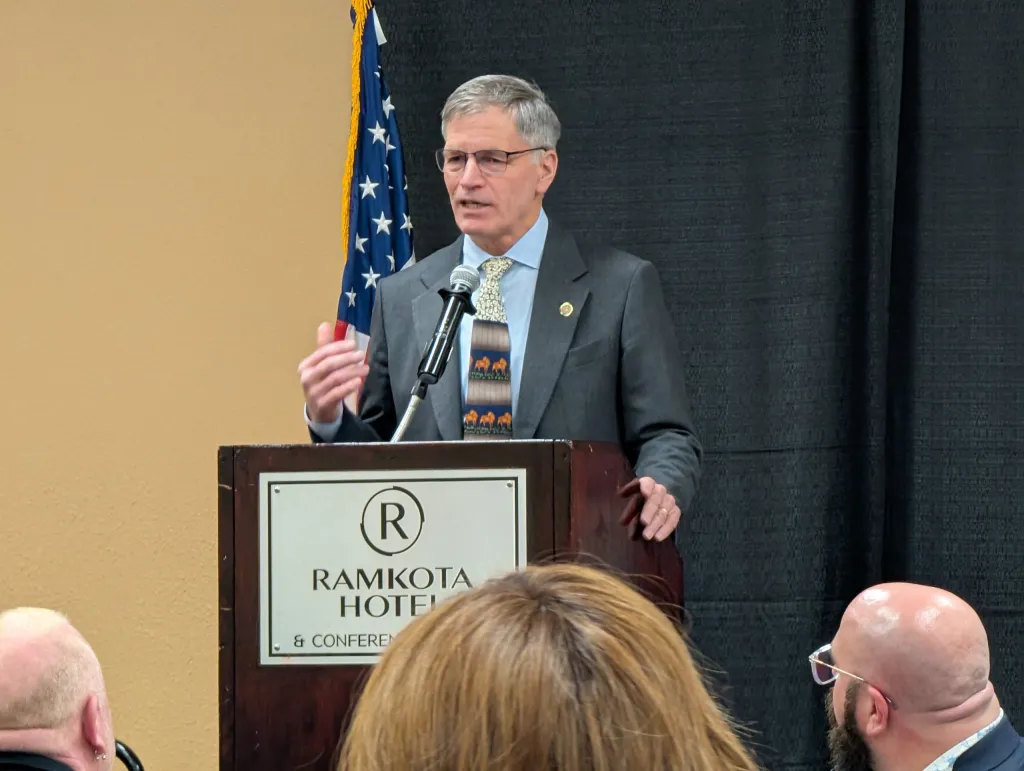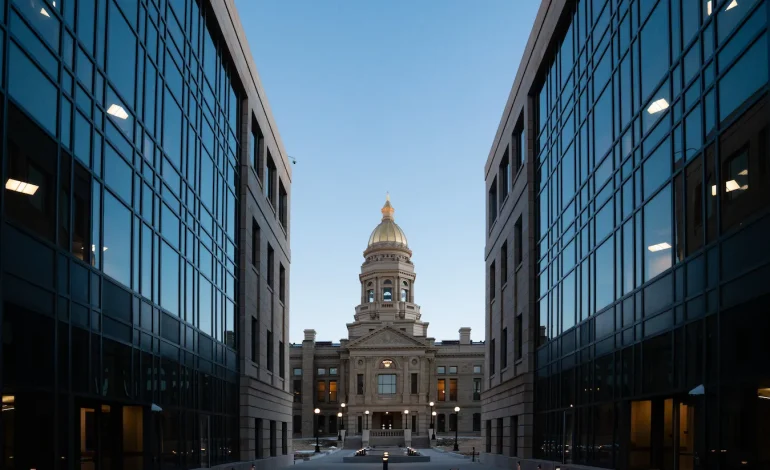As Wyoming lawmakers enter the legislative interim period—a time dedicated to study, stakeholder engagement, and preparation for the next budget—the Wyoming Freedom Caucus is prioritizing an initiative modeled after a federal program from the Trump administration, WyoFile reports.
The effort, dubbed “DOGE-ing Wyoming’s budget by identifying unconstitutional and wasteful spending,” draws inspiration from the federal Department of Government Efficiency (DOGE), a short-lived initiative that sought to cut federal jobs and spending. Though DOGE was met with legal scrutiny and questions about its effectiveness and transparency, members of the Freedom Caucus, including House Appropriations Chairman Rep. John Bear (R-Gillette), see value in applying similar principles at the state level.
“There’s a huge desire to see waste, fraud, and abuse tracked down and eliminated,” Bear said. “It’s only natural that a bureaucracy would have waste. If we turn a blind eye to it, we do a disservice to the taxpayers.”
Bear, who previously chaired the Freedom Caucus, believes the interim period offers an opportunity to identify low-priority or outdated expenditures ahead of the next two-year budget process. Among possible areas for cuts, Bear mentioned vacant government positions and select spending items removed in the House’s supplemental budget proposal earlier this year—such as funding for the Cheyenne arboretum and the governor’s energy matching fund.
The Senate, however, did not pass a supplemental budget during the 2025 session, an unprecedented move that added tension to ongoing budget discussions.
While Bear is a leading proponent of applying a DOGE-like approach at the state level, not all lawmakers are supportive. Sen. Mike Gierau (D-Jackson), a long-serving member of the Appropriations Committee, voiced concern about mimicking federal efforts he described as flawed.
“I think it’s insulting,” Gierau said. “It’s just stealing a bad idea from Donald Trump and trying to impose it on Wyoming.”
Gierau emphasized that efficiency doesn’t always mean cutting. Strategic investments—like those in early childhood education or mental health—can reduce long-term costs and improve overall well-being, he argued.
“There’s a reason people expect these services. They help the general welfare and create long-term savings,” he said.
The debate also touches on how state agencies use funding. Bear highlighted 388 vacant positions in the Department of Health, arguing that eliminating such vacancies wouldn’t impact existing employees. Gierau, however, countered that such positions offer flexibility to manage staffing and address turnover—an issue the state worked to mitigate with increased compensation following record-high attrition rates in 2022.
Currently, budget cuts are not on the official agenda for the Appropriations Committee’s June meeting in Gillette. Bear described the current stage of the Freedom Caucus’s effort as “research.” That includes attending public meetings, studying committee hearings, and examining how flexible funding—such as the University of Wyoming’s block grant—is used.
Rep. Ken Pendergraft (R-Sheridan), another Freedom Caucus member, echoed Bear’s concerns about government scope and spending priorities. Speaking at UW’s May budget hearing, Pendergraft urged a focus on essential services and suggested the state may need to consider difficult decisions, including shutting down less critical programs.
“What I think we’ve done to ourselves as a state is we’ve got ourselves spread far too thin,” Pendergraft said.
The Joint Appropriations Committee will reconvene on June 23–24 in Gillette. While no budget cuts are scheduled for discussion, the Freedom Caucus appears committed to shaping the upcoming budget cycle with DOGE-like scrutiny.










The latest news in your social feeds
Subscribe to our social media platforms to stay tuned